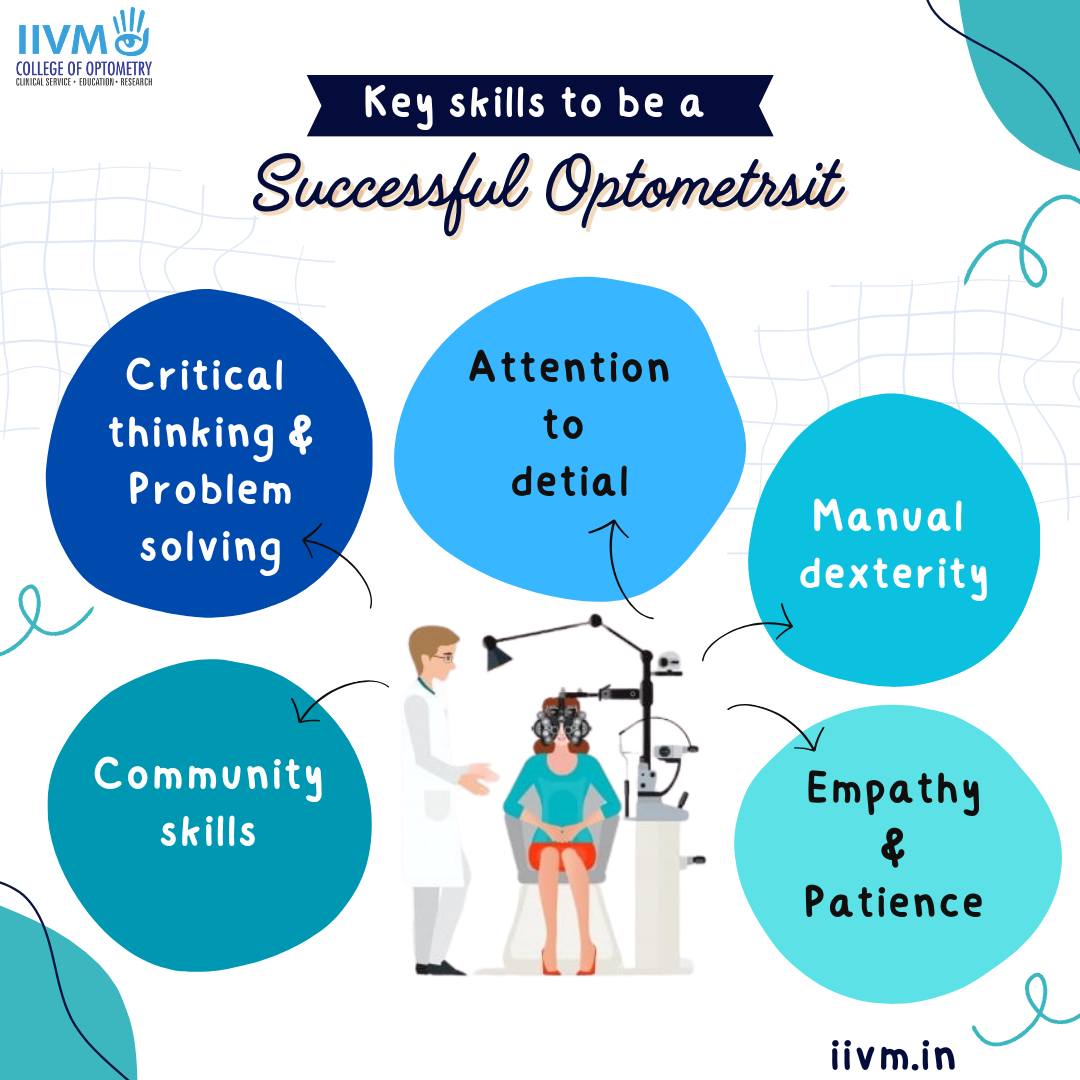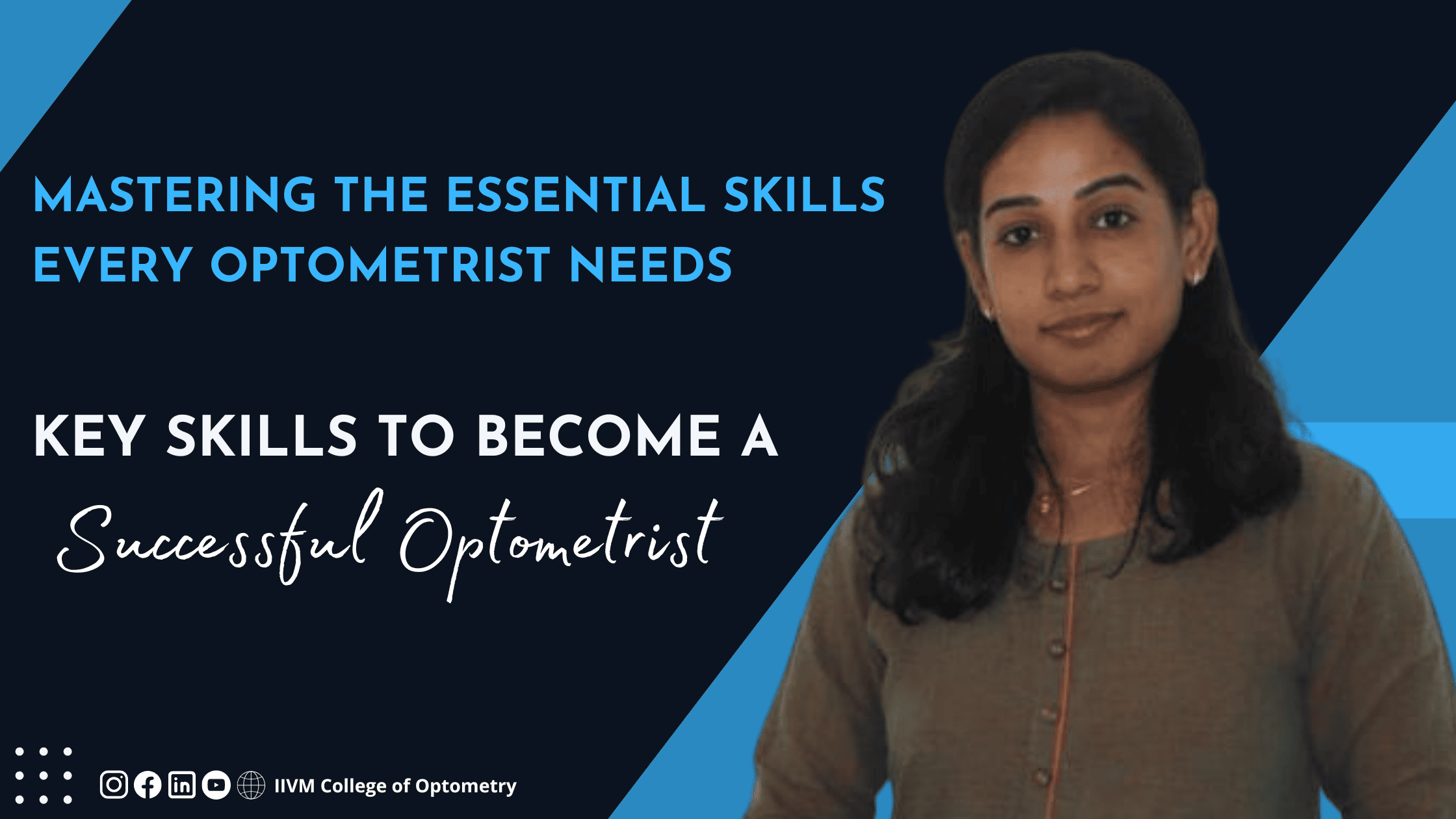Key Skills to become a Successful Optometrist
Becoming an optometrist requires more than just academic knowledge. Aspiring optometry students must develop technical and interpersonal skills to succeed in this rewarding field. Below are the top skills every optometry student should focus on:
"Success in optometry isn’t just about perfect vision; it’s about seeing the world through the eyes of your patients and making a difference in their lives."
- Attention to Detail
Optometry is a profession where small details matter. Whether performing an eye exam, interpreting results, or diagnosing eye conditions, optometrists must have sharp attention to detail to ensure accurate diagnoses and treatments. - Critical Thinking and Problem-Solving
Optometrists face a variety of vision issues, from refractive errors to complex diseases. Critical thinking is essential to make well-informed decisions and develop customized treatment plans for patients. A problem-solving mindset helps optometrists handle diverse patient needs effectively. - Manual Dexterity
Optometrists need steady hands to perform delicate procedures, such as fitting contact lenses or conducting eye exams. Manual dexterity is key for handling specialized instruments and ensuring patients’ comfort during treatment. - Communication Skills
Optometrists must be able to clearly explain diagnoses, treatment options, and preventive measures to patients. Strong communication skills also help in managing patient expectations and building trust, which is vital for patient satisfaction. - Empathy and Patience
Optometrists often work with patients of varying ages, including children and seniors. Empathy and patience are essential for ensuring patients feel comfortable and cared for throughout their eye care experience.

Developing these skills during optometry school will prepare you for a successful career in eye health, where you can make a meaningful impact on patients’ lives.


